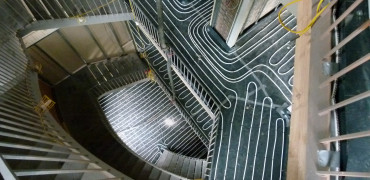Most companies tasked with maintaining HVAC equipment will be very familiar with the ‘make do and mend’ approach adopted by many building owners and managers, where each item is repaired to keep it operational in order to save the cost of replacing with a new version.
This will frequently result in plant and equipment remaining operational long after the manufacturer’s recommended replacement date, with little or no regard for whether the extended lifespan has seen efficiency levels remain at acceptable levels.
It is unlikely that these repairs will increase energy efficiency and the situation has been related to by a number of companies and individuals, who state that consumption will inevitably increase, mainly because a repair may result in the replacement of a broken or inoperative part but others will continue to deteriorate and show signs of wear and tear and therefore contribute to falling efficiency levels.
Should the situation continue to worsen to the point where regular extra call outs are required, the added costs of these – including call out charges and any impact due to breakdowns – will see the case for replacement become increasingly easier to justify, particularly when the benefits of improved efficiency can be factored in to add more weight to the return on investment business case.
Make sure that all statements are based on fact and not conjecture
The value of monitoring
With developments in technology making it easier to monitor the performance levels of HVAC systems, it is becoming a more simple task to include this in annual checks and help to illustrate the case for replacing items before they become too costly to maintain by comparing previous and current results.
Even if this level of data is not available, companies can still include the details of repair operations and additional call outs completed prior to the annual check, adding to this their professional opinion on how the picture will continue to evolve if the items concerned are not replaced over the course of the next 12 months.
The most important aspect, of course, is to make sure that all statements are based on fact and not conjecture, to reassure the client that the information is being presented in their best interest and to deliver the best outcome to maintain levels of trust and respect essential for long-term and productive business partnerships.
Dennis Flower is editor of Premise and Facilities Management Magazine.
If you have any questions about this article, you can contact us via email. Or if you would like to tweet us, please follow our MEUK_LES twitter page.
We upload new articles every week so remember to check back regularly.
You can also sign up for our monthly newsletter below.



